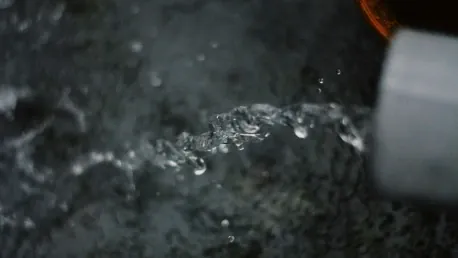The rising incidents of illegal sewage spills into Windermere, England’s largest lake, have ignited widespread public concern and led to regulatory investigations in 2024. The worsening situation became even more evident when environmental campaign groups discovered the shocking extent of these spills, prompting calls for accountability and immediate action. The issue has also raised serious questions about the management practices of United Utilities, the water company responsible for handling sewage treatment in the region.
Unprecedented Spill Numbers
In 2024, campaigners identified 140 illegal sewage spill days in Windermere, marking a significant increase compared to previous years. The data analyzed by Windrush Against Sewage Pollution (WASP) and Save Windermere revealed substantial non-compliance with environmental permits by United Utilities. The campaigners pointed out that sewage that should have been treated was instead discharged into the lake, endangering its ecological balance. This persistent issue has highlighted severe lapses in the water company’s handling of sewage and its commitment to environmental protection.
The situation has become so critical that it has triggered widespread public outrage and calls for stricter regulation and oversight of the industry’s activities. Environmental groups argue that the sheer number of illegal spill days indicates a systemic problem that goes beyond isolated incidents. By examining operational data, the groups argue that United Utilities failed to meet basic environmental permit standards, exacerbating the problem instead of addressing it. Such revelations demand immediate and effective responses to mitigate the long-term damage.
Environmental Impact
The illegal sewage spills have dire consequences for Windermere’s water quality and local biodiversity. Algal blooms, a direct result of the raw sewage entering the lake, have turned parts of the water green, adversely affecting both aquatic life and recreational activities. These blooms not only degrade the natural beauty of the lake but also present significant health risks to both humans and animals who come into contact with the contaminated water.
The environmental degradation caused by these spills threatens the lake’s delicate ecosystem, prompting urgent calls for remedial measures. The contamination is not limited to visible changes, as it also leads to oxygen depletion within the water. This harm can result in “dead zones” where aquatic life cannot survive, posing a severe threat to the biodiversity and ecological balance of the lake. Environmental activists and conservation groups emphasize the need for sustained efforts to safeguard Windermere from further pollution, including stricter enforcement of environmental regulations and more robust waste treatment strategies.
Dispute Over Data Accuracy
The analysis conducted by campaigners relied on United Utilities’ operational data, leading to disputes regarding the accuracy of the findings. United Utilities contested the claims, stating that the data used by campaigners was erroneous and based on incorrect assumptions. This disagreement has added complexity to the issue, as the public is left to determine whom to trust in this dispute. It underscores the importance of having transparent and consistent data monitoring practices to ensure accountability.
Despite the water company’s rebuttal, regulatory bodies like Ofwat and the Environment Agency are investigating the matter. Ofwat’s involvement is particularly significant, as the regulator assesses the financial and operational aspects of water companies. The contrasting interpretations of the data underline the necessity for a transparent system where data is publicly accessible and independently reviewed to prevent any manipulation or misinterpretation. As investigations continue, the need for clarity and accuracy in reporting illegal discharges becomes even more evident.
Regulatory Scrutiny and Investigations
Regulatory authorities have intensified their scrutiny of United Utilities’ sewage handling operations. Reports documented by the Environment Agency show 77,817 spill incidents in 2024, the highest among all English water companies, amplifying concerns about United Utilities’ compliance with environmental standards. Such staggering numbers have prompted the Environment Agency to take more serious actions to hold United Utilities accountable.
Ofwat and the Environment Agency’s investigations suggest potential criminal breaches of environmental regulations, placing United Utilities under significant pressure. These regulatory actions underscore the gravity of the situation and the need for corrective measures. If confirmed, such breaches could result in severe penalties and further regulatory constraints on the company’s operations. The possibility of criminal prosecutions being pursued indicates the severity of the non-compliance and the urgent need for immediate and effective remediation.
Corporate Responsibility and Financial Aspects
United Utilities’ financial status and executive remuneration come under critical examination amid the environmental fiasco. Despite substantial debt, the company’s executives receive high pay, sparking public and parliamentary outrage. The divide between the compensation of top executives and the company’s environmental performance has led to calls for reassessment of the utility company’s priorities to ensure that long-term sustainability becomes its core focus rather than short-term financial gains.
The contrast between the company’s financial management and its environmental performance underscores the necessity for corporate accountability. Activists demand that re-prioritizing be aligned with environmental responsibility and call for transparent reporting on how executive decisions are balancing profit and ecological sustainability. Without significant restructuring and stringent internal policies, the recurrence of such events may be inevitable. The public and regulators may well see executive pay linked to environmental compliance as a means to enforce accountability.
Future Investment Plans
The rising incidents of illegal sewage spills into Windermere, the largest lake in England, have sparked widespread public concern and prompted regulatory investigations in 2024. The severity of the situation was highlighted when environmental campaign groups discovered the alarming scale of these spills, leading to urgent calls for accountability and immediate corrective actions. This critical issue has also cast a spotlight on the management practices of United Utilities, the water company in charge of sewage treatment in the region. The company’s role has come under scrutiny as the public demands better oversight and solutions to prevent further damage to Windermere’s ecosystem. The controversy continues to grow as both residents and environmentalists seek justice and proper measures to ensure the lake’s protection. Such incidents underscore the need for stricter regulatory compliance and more responsible management of sewage systems to safeguard natural resources and public health.









